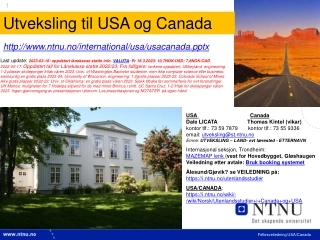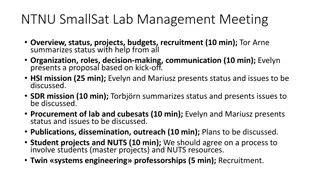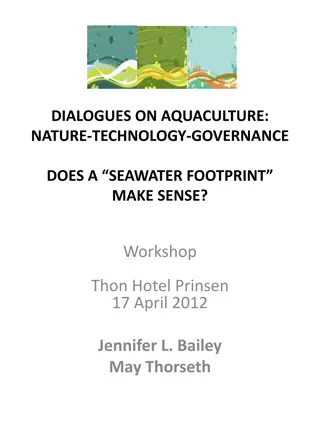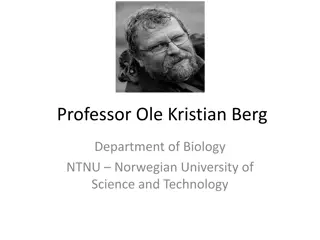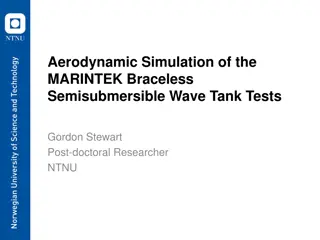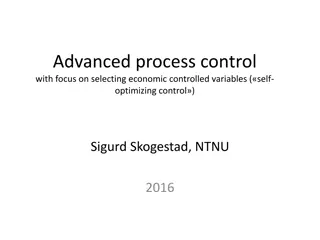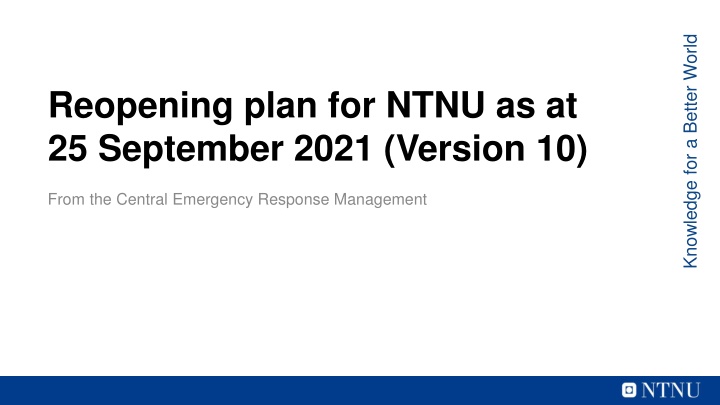
NTNU Reopening Plan Summary and Phased Steps
"Explore the phased reopening plan for NTNU, covering updates from April to September 2021. From limited in-person teaching to increased campus activities, learn about the evolving measures and restrictions in place. Stay informed on the guidelines for events, testing, and international student entry amidst the ongoing COVID-19 situation. Discover the transition from remote work to on-campus presence as Norway navigates towards a new normal."
Download Presentation

Please find below an Image/Link to download the presentation.
The content on the website is provided AS IS for your information and personal use only. It may not be sold, licensed, or shared on other websites without obtaining consent from the author. If you encounter any issues during the download, it is possible that the publisher has removed the file from their server.
You are allowed to download the files provided on this website for personal or commercial use, subject to the condition that they are used lawfully. All files are the property of their respective owners.
The content on the website is provided AS IS for your information and personal use only. It may not be sold, licensed, or shared on other websites without obtaining consent from the author.
E N D
Presentation Transcript
Knowledge for a Better World Reopening plan for NTNU as at 25 September 2021 (Version 10) From the Central Emergency Response Management
The Governments reopening plan for Norway Step 1 from 16 April : Easing the restrictions introduced before Easter Change back to 1 metre social distancing, limited serving of alcohol permitted, more people attending events in person, etc. Step 2 from May 27: Further easing of restrictions More in-person teaching, even more guests allowed in private homes and at events, longer hours for serving of alcohol, more scope for recreational sports, etc. Step 3 from 20 June: Opening in more areas Frequent use of rapid tests and Covid-19 certificates, competitions in recreational sports, more travel abroad, more scope for cross-border workers, etc. Almost normal everyday life, with increased preparedness, from 25 September: Continued measures to prevent infection, entry restrictions from some countries. Data and not dates control the time between each step. The conditions for moving from one step to the next are that there is no negative trend in infection rates, that the public health service has good capacity and that the vaccination plan is followed. 2
NTNUs reopening plan - Step 1 (from 19 April) About 50% in-person teaching Maximum 200 at lectures and 50 in group teaching Continued working from home for those who can Cautious reopening of social activities on campus Focus on psychosocial initiatives for students 3
Step 2 at NTNU (from 27 May) More teaching in person Increased use of regular testing and mass testing. Online exams take place (11 May - 11 June) Continued working from home for everyone who has the opportunity and/or flexible working hours. More people present at social events for students and staff (indoors maximum 10 without fixed seating, 100 with fixed seating). Separate rules for outdoor activities. Mandatory face masks in many places in Trondheim municipality from 20 May. Travel within Norway is possible. Travel abroad is still not advised. Strict entry restrictions still apply to foreigners who are not resident in Norway. Continued focus on psychosocial measures for students. 4
Step 3 at NTNU (from 22 June) Increased in-person teaching where relevant (up to about 80% of normal capacity). One-metre distancing rule in teaching spaces removed from 21 September. Campus is main workplace for all staff from 21 September. General measures to prevent infection and use of Check-in. Holding events outdoors rather than indoors is still recommended. Indoors: Up to 400 people at events without fixed places, 1000 with fixed places. If pre-event testing and Covid- 19 certificates are used, the number can be increased by 50 per cent. Risk assessments must be done for events on campus. International students were allowed to enter Norway from 1 August. PhD students could enter from 15 August. Travel restrictions still in place for particularly hard-hit countries. 5
Gradual phasing out of restrictions at NTNU - 1 The infection situation is still uncertain in all three university cities and local outbreaks may cause restrictions to be reintroduced or extended at short notice. Unless the infection situation gets worse, there will be no new rounds of mass testing (rapid tests) of students or staff. To be lifted from Tuesday 21 September: The recommendation to cancel large student events in Trondheim. Restrictions on events and stands on campus. As long as the infection situation does not get worse, the ordinary rules in effect before the pandemic will apply. The following requirements must still be met until the end of phase three in the national reopening plan: General measures to prevent infection must be followed. Risk analysis must be carried out (the form can be downloaded from this website). Alcohol use is not permitted on NTNU s premises on campus. 6
Gradual phasing out of restrictions at NTNU - 2 To be lifted from Tuesday 21 September - continued: One-metre distancing in teaching situations. But one should still keep a distance of at least one metre in rooms where there is no teaching (reading rooms, cafeterias and common areas) - see the advice from the Norwegian Institute of Public Health. Arrangements for working from home The current scheme will end when it is no longer necessary to provide for working from home for staff in Trondheim who use public transport to get to work. The main rule from 21 September will be that staff have a permanent workplace on NTNU s premises. To end when phase three of the national reopening ends (probably at the end of September): Recommendations on face masks. Applies where you cannot keep a distance of one metre and where crowding may occur. Ban on alcohol use on NTNU s premises. NTNU will revert to the scheme that applied before the pandemic, where alcohol can be served at closed events after an application to the Campus Services Division. 7
Almost normal, with increased preparedness (from 25 September) National measures such as the one-metre rule have been lifted. Emergency response capacity will be maintained. Less focus on contact tracing, greater focus on testing. General advice on preventing infection still applies: Wash your hands often, cough into a tissue or your elbow, and stay home if you feel sick.. Increased capacity in auditoriums, laboratories and group rooms makes it possible to increase the proportion of in-person teaching. Fewer subjects with hybrid teaching. Online teaching methods used where they are best suited. Courses that are fully online and have not been allocated a teaching space this semester will need to continue online for the rest of the autumn in most cases. All reading rooms, meeting rooms and other rooms on campus will be fully available. Exams will be held as planned previously with a mix of exams on campus and at home. 8
The last restrictions to be lifted at NTNU To end on about 31 October: Use of Check-in. The requirement for QR registration in all rooms will last until the end of October, because there is still a risk of minor outbreaks on the campuses in autumn. To be lifted later this autumn: Testing of students who are about to start practical training or excursions. The need will be assessed in the academic communities and the scheme will continue until all students have had the opportunity to get fully vaccinated, and probably longer than that. 9
Protection of unvaccinated people and other risk groups Although the percentage of students and staff who are fully vaccinated is increasing steadily and the restrictions at NTNU are gradually being removed, it is important to consider those who are unprotected or in risk groups. The vaccine protects against severe illness, but not against spreading infection. Students and staff who need special adaptations for documented medical reasons are asked to discuss this with their student adviser or line manager. Adaptations will be made according to the same guidelines as for other types of illness or disability. 10
Exams in autumn 2021 (main period 29 November 21 December) The exam period has been extended until 7 January 2022. Exams for some courses will thus be held during the first week in January. There will be digital and analogue exams written on campus as well as digital home exams. Capacity in Trondheim has been reduced by 20% because parts of the exam buildings are being used as a vaccination centre. The exam schedule was published at the start of the semester (week 33/34). 11

